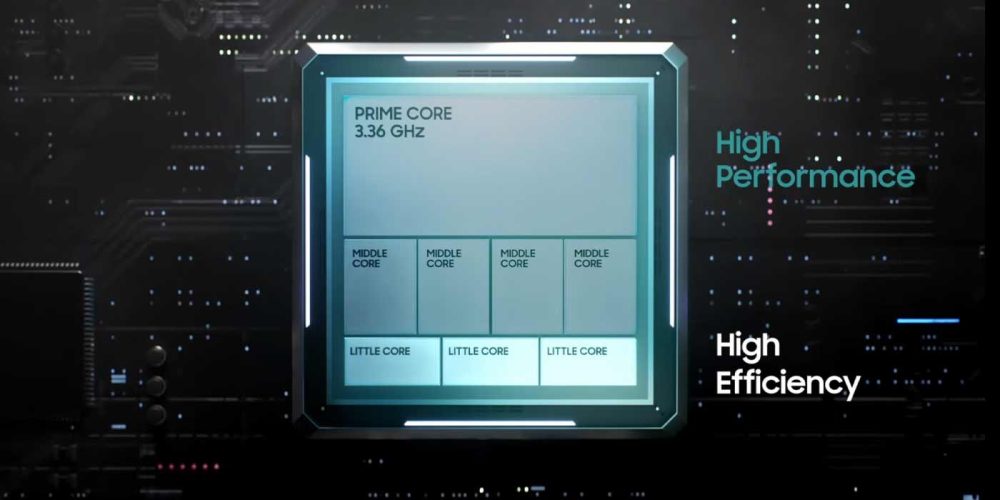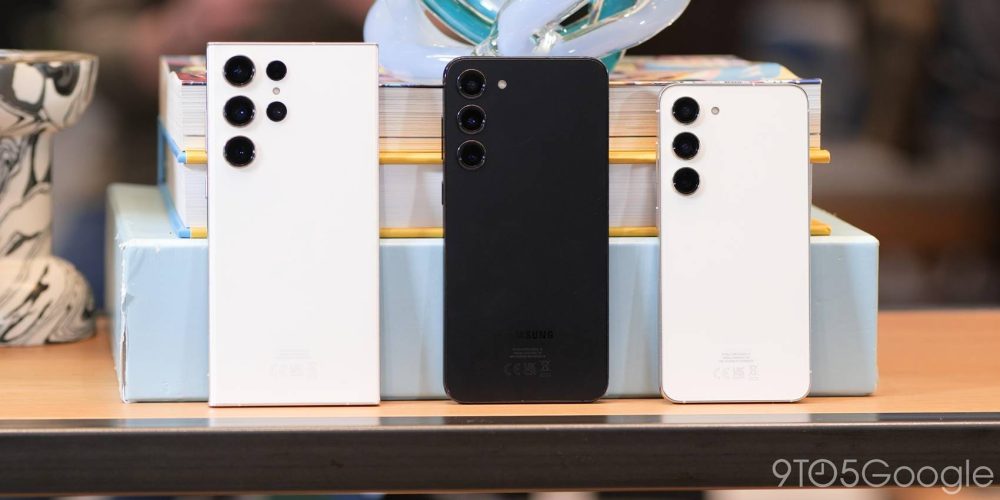
Samsung touts the Galaxy S23 Ultra as a powerful handheld machine, capable of taking mobile gaming to a whole new level. So how is Samsung planning on doing that? This guide will take you through a few ways the Galaxy S23 Ultra was made with gaming in mind and how it compares to the S23 and S23+.
Announced yesterday, the Galaxy S23 Ultra is Samsung’s top-of-the-line flagship device, even beating out the Z Fold 4 based on performance. With that, the S23 Ultra gets an extreme megapixel count of 200 on the main sensor, a Snapdragon 8 Gen 2 built specifically for the Galaxy lineup and a 5,000mAh battery. Of course, there’s more to the S23 Ultra, but the point stays the same: the Galaxy S23 Ultra is Samsung’s most powerful device.
With that, Samsung noted in the Unpacked 2023 event that the S23 Ultra was designed specifically with gaming and productivity in mind. Internally, there were improvements and tweaks made that meant users could spend more time playing games that were graphically more attractive (supposedly.) While the keynote videos were a little over the top, the improvements made are valid and have the potential to lend themselves to a device that rivals the likes of the ROG Phone 6 from ASUS and other gaming-first devices.
Related: Where to pre-order the Galaxy S23, S23+, or S23 Ultra and get the best deal
Snapdragon 8 Gen 2 and Adreno GPU
The biggest thing about the Galaxy S23 series – S23 and S23+ included – is that it packs Qualcomm’s latest and fastest chip, the Snapdragon 8 Gen 2. What’s interesting about this specific chip in the S23 Ultra is that it was designed specifically for Galaxy devices.
In CPUs, optimization goes a long way; to have a chip designed for a specific device proves to be better than one designed with broad use in mind. For instance, the Pixel 7 doesn’t have the fastest or best chip out there, but the Tensor G2 works fantastically well because it was designed with the phone in mind.
The S23 Ultra’s Snapdragon 8 Gen 2 is – according to Samsung – about 34% faster compared to last year’s lineup. With that, the SoC is built with 8 cores and made up of one primary, four middle cores, and three smaller cores. The primary and middle cores work with highly demanding activities, such as gaming. The lower cores are used in conjunction to up efficiency.

A big part of that system is the Adreno 780 GPU, which pulls a lot of weight to process and render visuals when gaming. Samsung also noted that the S23 series comes with a Ray Tracing module that works to deliver better contrast and details in games.
Higher peak brightness and AMOLED display
While the internals do pull a lot of the weight, a subpar display would waste all of that processing power. On the S23 Ultra, Samsung packed in a 6.8″ 3088 x 1440 AMOLED 2X display. The screen has an adaptive refresh rate of anywhere from 1Hz to 120Hz. An AMOLED display offers crisp blacks and more detail, which lends itself to a good gaming experience.
To add, the S23 Ultra has a peak brightness of 1,750 nits, which is perfect for playing your favorite titles in the middle of a bright day. This is one of the highest peak brightness levels on the market, followed by the iPhone 14 Pro at 2,000 nits.
The entire display is set to be quite inviting, whether you plan on gaming or not. The Quad HD+ display at 3880 x 1440 goes a long way, and with an AMOLED panel, you can’t really go wrong.
Large battery and better cooling
The third area that truly lends the S23 Ultra to gaming is the battery system. The S23 Ultra packs a 5,000mAh battery, which is a lot of raw power. To extend that, Samsung has made adjustments to optimize that power and provide better battery life for those who want to throw just about anything at the Galaxy S23 Ultra.
To assist in longer battery life, Samsung expanded the S23 Ultra’s vapor chamber, which means a bigger area for heat to disperse. With a better cooling system, the 5,000 mAh battery can go a little further.
While it isn’t so much the amount of time you can spend playing mobile games, having a better battery means those games don’t take up too much power. After you’re done, you want to be able to use your device for the rest of the day. It sounds like Samsung is aiming for that on paper, though it’s hard to tell without real-world examples.
Are the Galaxy S23 and S3+ made for gaming?
It’s clear Samsung is pushing the S23 Ultra. After all, it’s the most powerful out of the three, but not by as much as you may think.
Out of all the listed specifications, in reality, the S23 Ultra only differs in a couple of regards. For instance, all three devices have a Snapdragon 8 Gen 2, as well as an Adreno 780 GPU. On top of that, all three devices have an adaptive refresh rate of up to 120Hz, though the S23 and S23+ have a smaller range of 48-120. While this isn’t a loss for gaming, the S23 Ultra lends itself to better battery life because it can save power and display 1fps when needed.

What makes the S23 Ultra stand out is the battery size, extended cooling system, and the AMOLED display. All three of these systems add that extra power for mobile games that demand a lot out of your device.
Of all of Samsung’s Galaxy devices, the S23 Ultra would be our recommendation for a gaming-heavy device. Even if you don’t game, other activities like photo editing and multitasking will put the S23 Ultra to the test. Of course, we have had a very limited time with the S23 Ultra so far. Things on paper always sound perfect, but real-world performance will prove whether or not the S23 Ultra can live up to its hype. Be on the lookout for our full review of the S23 Ultra in the coming weeks.
More on the Galaxy S23 series:
- Galaxy S23, S23+, and S23 Ultra arrive starting at $799 with 200MP camera, 256GB storage in tow
- Galaxy S23 Ultra vs. Pixel 7 Pro: Does Samsung regain the Android crown? [Video]
- Samsung finally admits curved screens are bad, has flattened out Galaxy S23 Ultra by 30%
Author: Andrew Romero
Source: 9TO5Google



